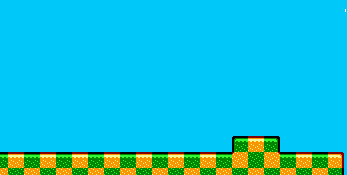the longest thread, thread - Occasionally NSFW
Moderator: Community Team
I only need 4 more posts til my 500th post.
I cant decide wether to make my own thread for it, or just put it in the longest thread
I cant decide wether to make my own thread for it, or just put it in the longest thread
-
 Machiavelli
Machiavelli
- Posts: 2021
- Joined: Wed Feb 08, 2006 7:34 pm






-

 kingwaffles
kingwaffles
- Posts: 718
- Joined: Mon Jan 23, 2006 9:05 am
- Location: Pseudopolis Yard, Ankh Morpork, Discworld



Well...if the answer isn't 3 or 5, is must be 4, right? Now how do we arrive at this solution...
From mrdexter's work, we know that the only possible combinations are:
1/4/8, 1/5/7, 2/3/8, 2/4/7, 2/5/6
How do we rule out 1/5/7, 2/3/8, and 2/5/6?
Let's go through this again...
2/3/8:
Let's skip right to Person 2, Brian. He picks up his card and finds a 3. Only choices are 1/3/9 and 2/3/8. He knows that the only possible combination is 2/3/8, since Ed (Person 3) would've known the other 2 cards, since he had a 9, and the only possible combination is 1/3/9. Since it wasn't, it has to be 2/3/8.
2/5/6:
This time, let's go to Person 3, Ed. Ed, the person on the right, picks up the card and finds a 6. Only choices are 2/5/6 and 3/4/6. It must be 2/5/6 because if it was 3/4/6, Jennifer (Person 1) would've found the 3 and known that the other 2 numbers must be 3/4/6. Since she didn't, it must be 2/5/6.
1/5/7:
Again, let's skip to the end. Brian (Person 2) looks and finds 5. It could be 1/5/7 or 2/5/6. Brian knows it must be 1/5/7 because if Ed picked up a 6, he would know that the numbers had to be 2/5/6, because Jennifer (Person 1) would've known the 2 numbers were 3/4/6. (Just like the example above).
Therefore, the answer is 4. And now I have a major migraine. >.<
From mrdexter's work, we know that the only possible combinations are:
1/4/8, 1/5/7, 2/3/8, 2/4/7, 2/5/6
How do we rule out 1/5/7, 2/3/8, and 2/5/6?
Let's go through this again...
2/3/8:
Let's skip right to Person 2, Brian. He picks up his card and finds a 3. Only choices are 1/3/9 and 2/3/8. He knows that the only possible combination is 2/3/8, since Ed (Person 3) would've known the other 2 cards, since he had a 9, and the only possible combination is 1/3/9. Since it wasn't, it has to be 2/3/8.
2/5/6:
This time, let's go to Person 3, Ed. Ed, the person on the right, picks up the card and finds a 6. Only choices are 2/5/6 and 3/4/6. It must be 2/5/6 because if it was 3/4/6, Jennifer (Person 1) would've found the 3 and known that the other 2 numbers must be 3/4/6. Since she didn't, it must be 2/5/6.
1/5/7:
Again, let's skip to the end. Brian (Person 2) looks and finds 5. It could be 1/5/7 or 2/5/6. Brian knows it must be 1/5/7 because if Ed picked up a 6, he would know that the numbers had to be 2/5/6, because Jennifer (Person 1) would've known the 2 numbers were 3/4/6. (Just like the example above).
Therefore, the answer is 4. And now I have a major migraine. >.<
-

 Risk_06
Risk_06
- Posts: 159
- Joined: Wed Jan 18, 2006 8:33 pm
- Location: BC, Canada.
I'm gonna just nod if that's ok, it's 6am, I've been up nearly 24 hours and my brain died a couple of hours ago.
Positive: Great guy, will always play to his best. Honourable and fun to play with as well. You know you're in for a rough time playing mrdexter  Game 31384 Haydena
Game 31384 Haydena
Positive: Mr D is the golden child of CC, if we had to elect a king he'd get my vote! Game 76700 silus
Positive: Mr D is the golden child of CC, if we had to elect a king he'd get my vote! Game 76700 silus
-

 mrdexter
mrdexter
- Posts: 212
- Joined: Sun Mar 19, 2006 6:21 am
- Location: England



i did well today!
The Society of Cooks Train a cook today battle an officer tomorrow! Making good players great! viewtopic.php?f=341&t=74468
xiGAMES Member

xiGAMES Member

-

 gloryordeath
gloryordeath
- Posts: 1877
- Joined: Sun May 28, 2006 6:56 pm
- Location: Denver, CO U.S.A.









qeee1 wrote:No, that's Marvaddin. Clearly you haven't been reading the thread.
how true...lol...i remember those days...don't tell him that I'm legal now
"It appears my hypocrisy knows no bounds." -Doc Holliday
-

 areyouincahoots
areyouincahoots
- Posts: 1794
- Joined: Wed Mar 15, 2006 5:34 pm
- Location: Arkansas






johnnyrotten wrote:BUMP.
Love the style in that BUMP.
‹max is gr8› so you're a tee-total healthy-eating sex-addict?
‹New_rules› Everyone has some bad habits
(4th Jan 2010)
‹New_rules› Everyone has some bad habits
(4th Jan 2010)
-

 max is gr8
max is gr8
- Posts: 3720
- Joined: Sat Jan 21, 2006 6:44 am
- Location: In a big ball of light sent from the future












i love icecream
The Society of Cooks Train a cook today battle an officer tomorrow! Making good players great! viewtopic.php?f=341&t=74468
xiGAMES Member

xiGAMES Member

-

 gloryordeath
gloryordeath
- Posts: 1877
- Joined: Sun May 28, 2006 6:56 pm
- Location: Denver, CO U.S.A.









i have icecream fot breakfest
The Society of Cooks Train a cook today battle an officer tomorrow! Making good players great! viewtopic.php?f=341&t=74468
xiGAMES Member

xiGAMES Member

-

 gloryordeath
gloryordeath
- Posts: 1877
- Joined: Sun May 28, 2006 6:56 pm
- Location: Denver, CO U.S.A.









and beer
The Society of Cooks Train a cook today battle an officer tomorrow! Making good players great! viewtopic.php?f=341&t=74468
xiGAMES Member

xiGAMES Member

-

 gloryordeath
gloryordeath
- Posts: 1877
- Joined: Sun May 28, 2006 6:56 pm
- Location: Denver, CO U.S.A.









oh
The Society of Cooks Train a cook today battle an officer tomorrow! Making good players great! viewtopic.php?f=341&t=74468
xiGAMES Member

xiGAMES Member

-

 gloryordeath
gloryordeath
- Posts: 1877
- Joined: Sun May 28, 2006 6:56 pm
- Location: Denver, CO U.S.A.









sorry
The Society of Cooks Train a cook today battle an officer tomorrow! Making good players great! viewtopic.php?f=341&t=74468
xiGAMES Member

xiGAMES Member

-

 gloryordeath
gloryordeath
- Posts: 1877
- Joined: Sun May 28, 2006 6:56 pm
- Location: Denver, CO U.S.A.









i hear ya man i must of fell like 50 times last nite damn i think im still drunk wish i could sleep ::::damn jason hes still snoring :::: lol
All trespassers will be shot on sight. All survivors will then be prosecuted to the fullest extent of the law. Have a nice day!!!
-

 Kylie
Kylie
- Posts: 1487
- Joined: Fri Mar 17, 2006 9:31 pm
- Location: louisville



moring beer and icecream help or you can drink so much beer every that you no long get hang overs. at least untill someone shows up with 150 jello shots. uh that was a long night and on a thursday to.
The Society of Cooks Train a cook today battle an officer tomorrow! Making good players great! viewtopic.php?f=341&t=74468
xiGAMES Member

xiGAMES Member

-

 gloryordeath
gloryordeath
- Posts: 1877
- Joined: Sun May 28, 2006 6:56 pm
- Location: Denver, CO U.S.A.









oh god the last time i had jello shots was when my friend katie put pure alcohol in them ouch those were gross burned going down lol
All trespassers will be shot on sight. All survivors will then be prosecuted to the fullest extent of the law. Have a nice day!!!
-

 Kylie
Kylie
- Posts: 1487
- Joined: Fri Mar 17, 2006 9:31 pm
- Location: louisville



Who is online
Users browsing this forum: mookiemcgee

 10-0 United States 2/5/07
10-0 United States 2/5/07





